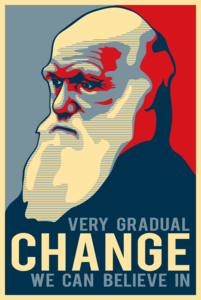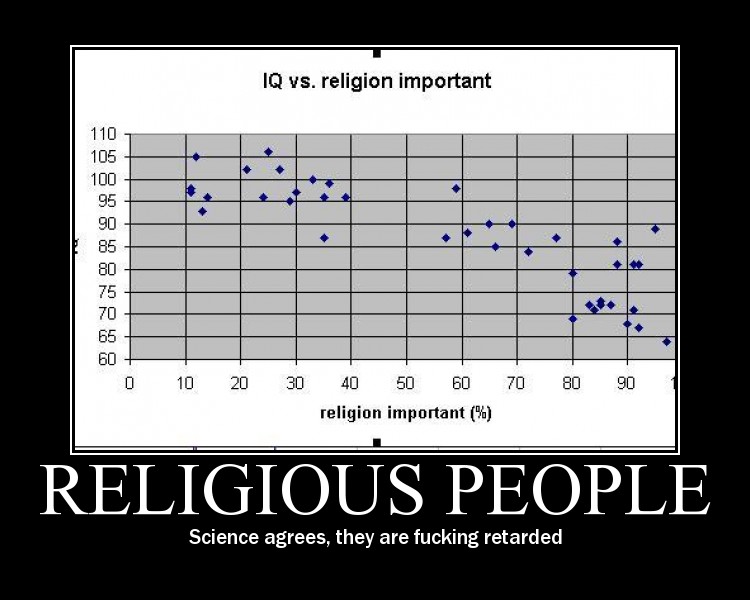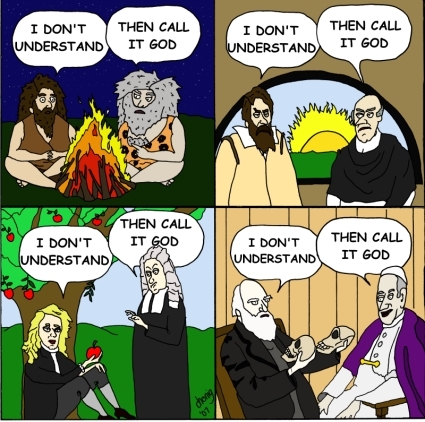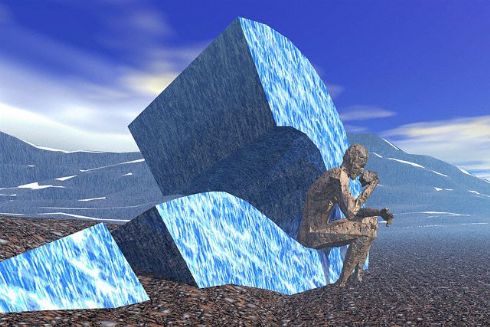
Usually the objections to evolution I encounter when discussing the subject with a creationist are based in misunderstanding of what evolutionary theory is, what it actually states and what it does not. Commonly the objections are nothing more than a straw man fallacy.
Straw man fallacy:
“A straw man argumentis an informal fallacy based on misrepresentation of an opponent's position. To "attack a straw man" is to create the illusion of having refuted a proposition by substituting a superficially similar proposition (the "straw man"), and refuting it, without ever having actually refuted the original position.”
For example I commonly hear things such as, “How could an eye just pop into existence”. If evolutionary theory stated that something as complex as an eye could just “pop into existence”, then it clearly would be a ridiculous theory. However the theory does not claim anything like that, and this is a typical straw man fallacy born out of misunderstanding and ignorance.
I will attempt to simply what evolutionary theory does state, and what it does not with regard to common misconceptions I have heard.
Misconception of Evolution having a goal.
Misconception of species changing rather than splitting.
Misconception of Micro Evolution.
Misconception of intermediate forms.
I have started with the misconception of Evolution having a goal because I believe it will be a good place to cover the basics and clear away some extremely common misconceptions which hinder any further learning if they are in place.
Evolution via Natural selection is essentially made up by two important facts. Variety among individuals, and selection pressures on reproduction. To put it simply, if one individual is better equipped to breed than another, the chances that it will breed are higher than the other less well equipped individual. For example a fast and strong cheetah has a much better chance of surviving than a slower and weaker cheetah does. The faster and stronger cheetah is likely better at catching it's prey, it therefore will have a better chance of staying alive longer than a cheetah who is failing to catch its prey, and therefore starving. The physical variation between the two differentiate how successful they are likely to be at surviving in a competitive environment. If the weaker cheetah dies of starvation at a young age, it is unlikely to have bred and it is therefore unlikely to have passed on its genes to offspring. The strong cheetah however, which is living a long successful life may have bred many times, producing offspring which contain the successful genes which made it strong and fast.
Lets rewind here a second however. What would make one cheetah strong, and one weak, and where does this variation among individuals come from?
Every individuals body is made using a DNA recipe which is unique to that individual. DNA – Deoxyribonucleic acid - is essentially a very long molecule which interacts with other molecules/chemicals to form a chain reaction of physical processes which build bodies. Bodies are made of cells, which contain the DNA recipe within them (in the nucleus). These cells must replicate in order to form large and complex bodies made up of billions of them. It is useful to think of your DNA as a recipe for building your body, not as a predefined plan or blueprint.
Everyone's DNA varies because when the DNA replicates itself to build cells, the physical process can go slightly wrong, and the replication is not perfect. You and your next door neighbors DNA varies by about 3 million differences in the DNA recipe.
You have about 3 billion bits of code in your recipe. If your neighbor had the exact same 3 billion characters in their DNA recipe, the physical process of building the body from the recipe would happen the same way as yours, and you would look identical. This is not the case though because changes in the recipe happen randomly, and regularly, and your DNA took a different journey through your ancestors to end up with you. When your mother and your father's DNA combine to create your DNA, your DNA contains copies of genes they both posses which make them different individuals (Roughly 50% from your mother and 50% from your father). This newly combined DNA contains differences that were passed down from past ancestors via your mothers lineage, and via your fathers lineage. This is what enables your parents to have variance in their own DNA recipes. In addition to this, the newly combined DNA that forms you, will also contain mutations that have occurred in your mother and fathers own DNA since it was first combined from their mother and father.
So going back to the cheetahs, if a mutation happens in part of the DNA recipe which dictates how the chain reaction of physical process will work to build leg muscles, then the legs will be built differently between two individuals with different DNA recipes. The different DNA recipes built a cheetah with strong fast legs, and a cheetah with slower weaker legs. Mutations can also occur to the parts of the DNA recipe which govern how and when a particular part of the recipe (a specific gene, which encodes a specific protein) is used and for how long. We can see dramatic difference in individuals just by using the same ingredients in the recipe for different lengths and at different times.
So as we can see, variation among individuals arises purely as part of the physical processes which build life.
The next important part is the selection of which variety of individual will pass on their variation of the DNA recipe, and which will not. It is quite easy to understand. Those which have variations which make them better able to survive, or out compete other individuals, will have a better chance of producing offspring. (like in our cheetah example)
You can easily see how different environments would favor different variations and place different selection pressures on individuals. For example in a cold environment those with thicker fur will have less chance of dying from exposure, and therefore a greater chance of surviving and reproducing. Or in a desert those who can store energy more efficiently will have less chance of dying of thirst or starvation. Selection is not random, and is in fact quite predictable .
So we could say: Variation is random, selection is non random.
So to get to the misconception of evolution having a goal; given what we know about how the process works, we can see that there is no goal for evolution or no end point that a species is trying to get to. Evolution happens simply because environments select for those traits in individuals that are going to more successful than those that are not in the current environment. A species group living 60 million years ago did not have a goal to try and evolve to become like a modern organism living now. Any single living thing is just trying to make a living at whatever time it is alive. It is the varying success of traits that will drive a change over time, not any type of goal or desire to change.
Evolution is not a march of progress in a defined direction, it is simply a natural response to varying environmental pressures placed on living organisms which replicate themselves.
So when we find a fossil of an extinct animal which is vastly different to a modern animal and evidence suggests that the extinct animal was once an ancestor of a currently living animal. We should not view it as if the extinct animal and all its descendants had a goal in mind of trying to morph into the modern form we recognize around today. We should view it as all the millions of descendants had variations that were selected for in various environments because the variation allowed that particular ancestral individual to successfully mate, and pass on the successful variant. It is useful not to think of living organisms as species of distinct groups of animals, but as collections of traits (or genes). Traits that were able to be passed down in varying environments because some traits suit some environments better than others.
Edited to add: Technically, there's really no such thing as "species," that's just how we categorize animals with similarities.
Imagine a color spectrum. At what point does red become orange? It's an arbitrary distinction made for convenience. All organisms evolve smoothly, there's no point at which one becomes another, just like you can never show the "transitional" point between red and orange.
This is why the creationist's hunt for a transitional species is a red herring. Either nothing is a transitional species, or everything is a transitional species. When scientists use that term, they're talking about filing in massive gaps of morphology in the fossil record. But if you had a sample of every animal that ever existed it would look like an extended version of a color spectrum. Imagine twenty feet of colors between aqua and blue-green.
http://www.vtutorials.com/curefaith/micro-vs-macroevolution.html








